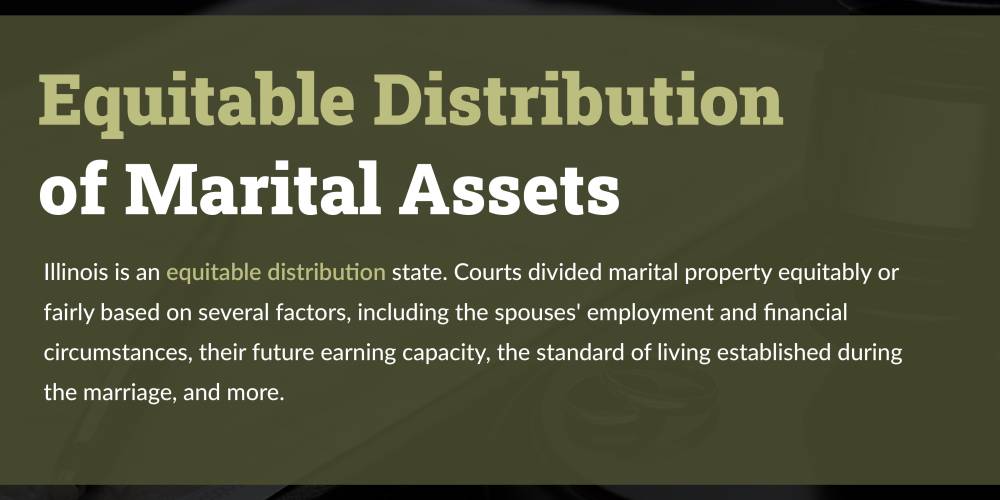630-462-9500
After Hour New Client Telephone Number 630-690-6077
1776 S. Naperville Road, Building B, Suite 202,
Wheaton, IL 60189
Can I Buy a New Home Before My Illinois Divorce Is Finalized?
 You might be surprised to know that more single women (including widowed, separated, or divorced) are homeowners than single men, with the homeownership rate among single women at 53 percent. Women are also more likely to make financial sacrifices to own a home than men (42 percent vs. 32 percent). That said, women or men might decide to buy a home while the divorce is ongoing, especially if the divorce seems to be taking longer than expected.
You might be surprised to know that more single women (including widowed, separated, or divorced) are homeowners than single men, with the homeownership rate among single women at 53 percent. Women are also more likely to make financial sacrifices to own a home than men (42 percent vs. 32 percent). That said, women or men might decide to buy a home while the divorce is ongoing, especially if the divorce seems to be taking longer than expected.
The emotional implications of divorce can certainly be difficult to contend with, yet the logistical and financial consequences of divorce are often just as taxing. If you and your spouse have recently split up, you are probably looking for a new place to stay. Many people choose to rent an apartment or stay with family or friends while their divorce is pending, but others choose to actually purchase a home.
If you are set on buying rather than renting, you may be wondering how the decision to purchase a new home will affect your divorce. There are many issues to consider regarding purchasing a home during divorce. While you may want the stability of home ownership, many things can change after your divorce. Discuss the issue with a knowledgeable Wheaton, IL family law attorney before you make such a momentous decision.
Equitable Distribution of Marital Assets
Before we can discuss the consequences of buying a home while going through a divorce, it is important to understand how Illinois courts divide marital property. Illinois is an equitable distribution state. Courts divided marital property equitably or fairly based on several factors, including the spouses' employment and financial circumstances, their future earning capacity, the standard of living established during the marriage, and more.
Unlike in community property states, it is possible that one spouse may receive a greater share of the marital estate than the other during an Illinois divorce. Marital assets include any property or debts accumulated by either spouse during the course of the marriage. Before making any major financial decisions during your divorce, It is crucial to understand how Illinois law affects the division of assets.
A home bought while your divorce is still in the works could potentially be considered marital property to be divided. Even though you might buy the home with some of your marital funds and title it in your own name, the court might consider it a marital asset, even if your spouse agreed to the purchase verbally. If your spouse does agree, make sure you have the agreement in writing, signed by both parties and approved by the court.
The agreement should be very detailed in terms of equity and title to ensure there are no misunderstandings later on during the divorce. It is also important to note that you should not attempt to buy a home on your own until both parties have provided full financial disclosure during the divorce. Even if you think your spouse would never try to cause you problems with a home you purchased during the divorce, this may not always be the case.
The bottom line is that purchasing a home during your divorce has the potential to significantly complicate your divorce proceedings. A home is a large financial asset that can potentially impact how marital assets and debts are divided between you and your spouse. You may end up receiving fewer marital assets and being awarded more marital debt, as it could be perceived by the court as a disadvantageous financial move to purchase a home during the divorce.

Reaching an Agreement Outside of Court
Of course, not every divorce case ends up going to trial. It is possible for some divorcing couples to reach an agreement about marital property through negotiations or an alternative dispute resolution method like mediation. If you and your spouse agree that you will purchase a home and that he or she will not be entitled to a portion of the value of the home, you may be able to move forward with the purchase.
It is essential that you formalize this agreement. Relying on a verbal agreement could be disastrous if your spouse changes his or her mind. Furthermore, you will likely need written proof that you are being awarded the down payment funds in the divorce in order to secure a loan from a lender.
Other Issues You Must Consider When Buying a House Before the Divorce is Final
While you and your spouse might have easily qualified to buy a home while you were married, lenders may be less excited about loaning a single person with half the income the money for a home. Hopefully, you maintained your own credit history while you were married, and you have a good credit score. If, however, your spouse has unpaid bills that you were unaware of, this can lower your own credit score.
Before you decide to buy a home, consult with a lender to discuss your financial situation and ensure you will be approved for a mortgage. You may have different financial obligations now than you did while you were married. Child support, spousal support, payments for daycare, or health insurance for the children are some of these obligations.
Follow These Steps if You Decide to Buy a Home During Your Divorce
It will virtually always be easier to buy a home after your divorce, but perhaps a home has just come onto the market that you just cannot pass up. If so, remember the following:
- If you have a legal separation agreement, finalize it and have it signed by the judge.
- Never buy a home during your divorce without fully discussing the issue with your divorce attorney.
- FHA, VA, and USDA loans take into account the debts of a spouse regardless of whether that person is on the mortgage. Make sure you are no longer responsible for your spouse’s debts.
- Have the court sign off on the purchase of your new home as a part of your divorce proceedings.
- Begin rebuilding your separate bank account funds, and make sure you have a solid credit history on your own.
- Even if you believe you have found the "perfect" home, make sure you know exactly how much you can afford to spend on buying the home, especially if it needs repairs.
- Make sure all documentation associated with the house purchase is in your name alone, including your real estate contract, purchase offers, the mortgage, and the deed.
- Use separate funds to pay the down payment and closing costs; using funds from a joint account – even if you are entitled to those funds – could give your spouse rights to the property.
Contact a DuPage County, IL Divorce Lawyer
If you are planning to purchase a home or make other major financial decisions during divorce, it is highly recommended that you consult with an experienced Wheaton, IL divorce lawyer from The Stogsdill Law Firm, P.C.. Our firm is one of the most prestigious in the area.
We are large enough to ensure you have every resource you need while still providing exemplary client service. Call 630-462-9500 to schedule your confidential consultation with one of our skilled family law attorneys.




















